Gotland Game Conference 2018 Part 1
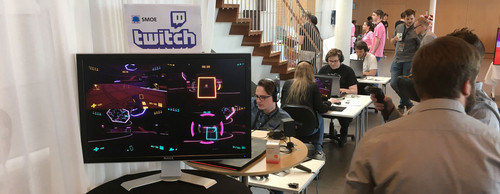
The Gotland Game Conference 2018 is a way for Uppsala University to show off their Game Department students and their work. There are also Game related speakers and jurry members that are invited to participate in the conference in one way or another. It allows for people working at Game Development companies and the students to meet to exchange ideas or open up potential job prospects. For our team this was no different.
For presenting our game we planned on having six laptops which would mean we could host three matches simultaneously. A single computer would run our in-game spectator mode which would be displayed on a 40 inch TV. Another computer would run our Twitch stream which would show in a large 30 inch monitor for people to see all of the matches at the same time. Finally we have our spectator VR headset that was running on a powerful laptop. In our grand scheme of trying to present our game in the best way possible we ended up needing a lot of floor space to achieve this. Even with planning the layout, what equipment we would need, and reserving all of that ahead of time, the presentation area wasn't quite what we needed. Rather than stand there scratching our heads and complain about what it should be like, we did what we always do best: we pivoted and adjusted to the situation to fit our needs.
We couldn't fit six laptops with their tables so we scaled it down to four laptops which turned out to be a much better option for us which also meant less equipment to deal with. Spectator mode was not bullet proof during our testing periods so we dropped it from presenting because it simply was not polished enough to show. No spectator mode meant another computer we didn't need along with a TV stand and the 40 inch TV. The Twitch computer had more space to exist and the four laptops allowed for a perfect quad-screen display that was easy to watch for anyone walking around the conference floor. The VR spectator could be more easily placed so it took up less space as well.
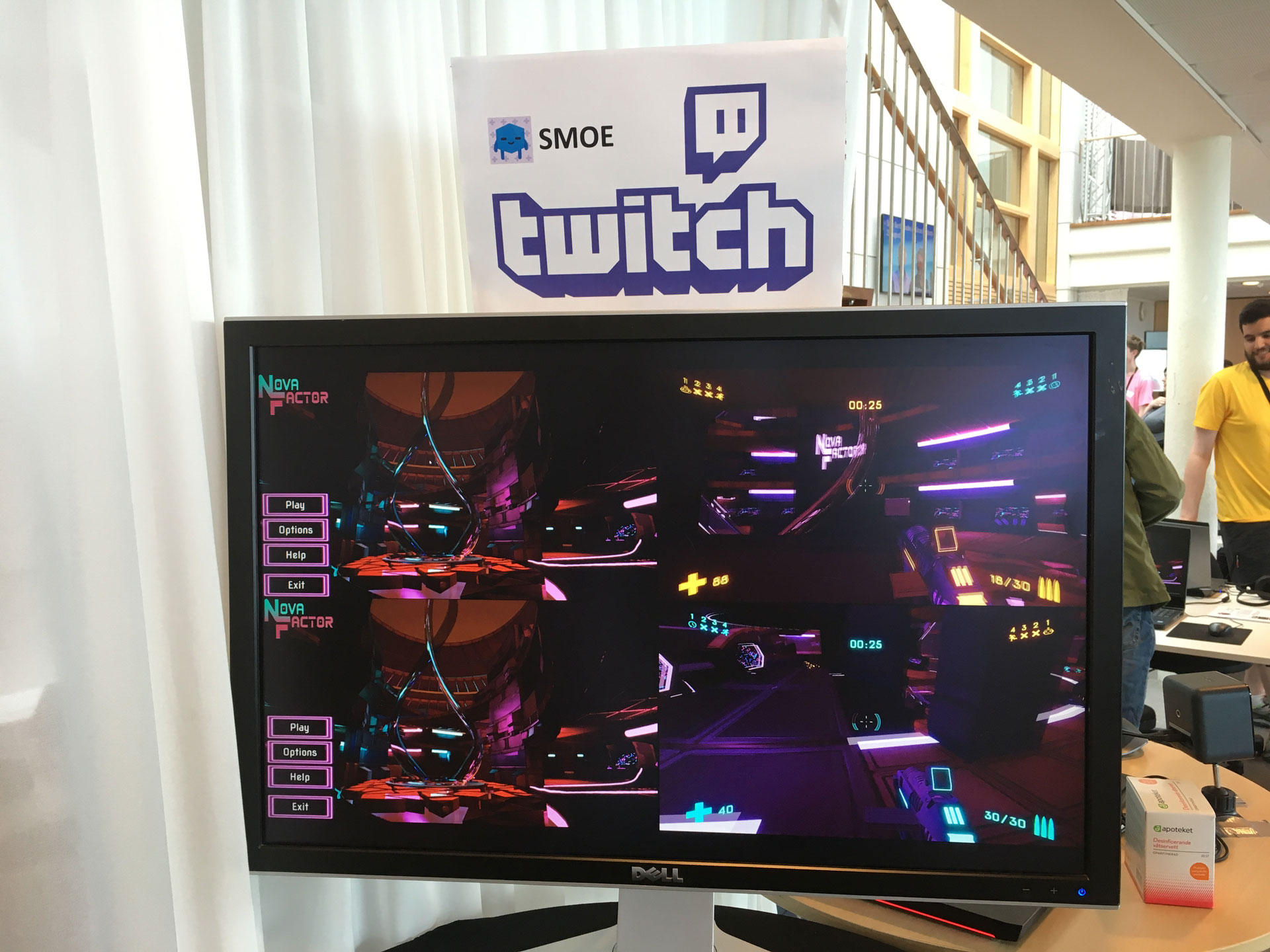
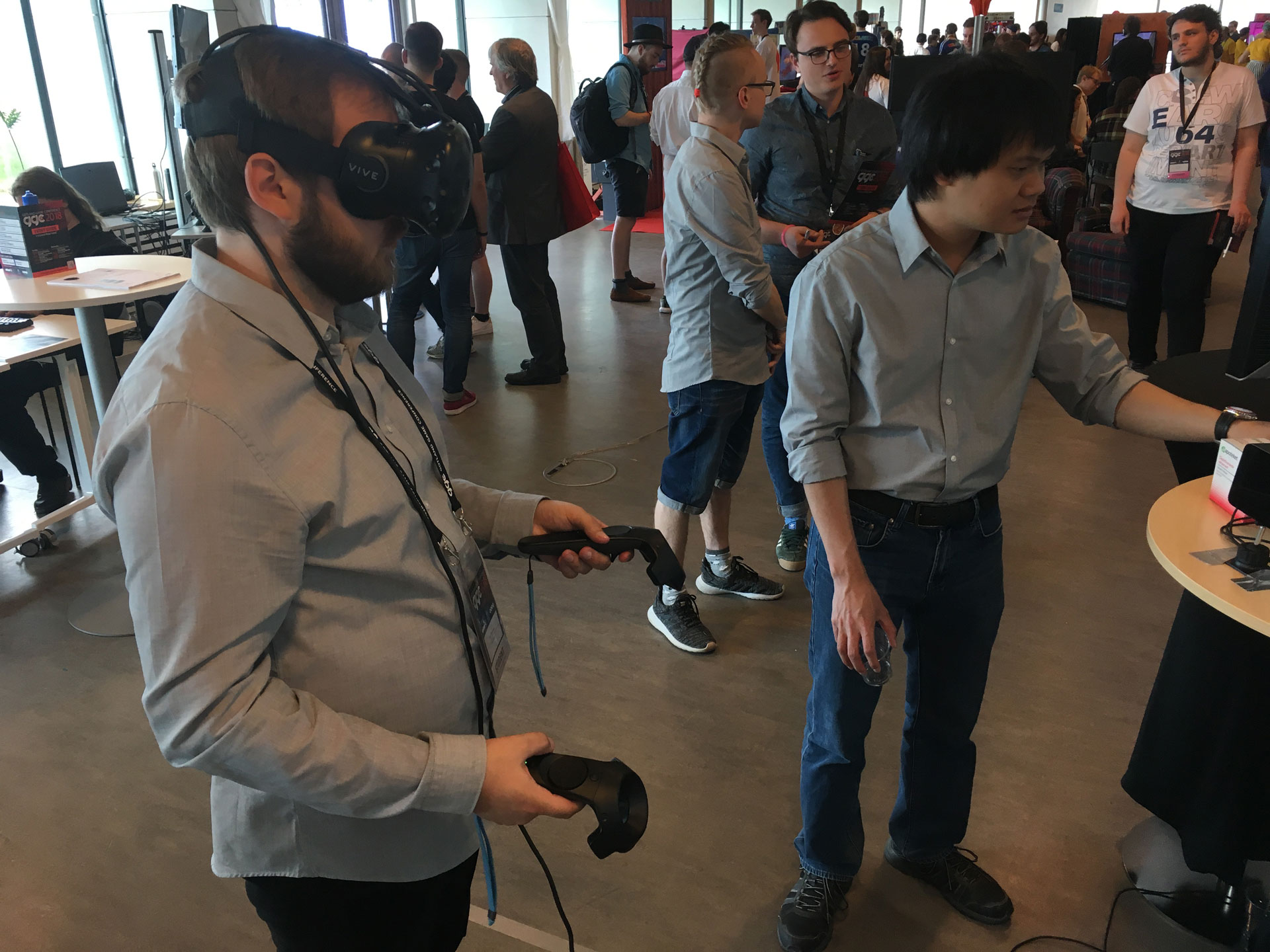
After all of the setup and testing that things were working as intended, we just had to wait for the Jury to start their rounds. Watching people play our game was very rewarding because there are so many things people communicate through their actions and reactions that says much more than words can. Observation is a critical part of understanding how your game is actually performing while people are playing it. You can quickly see if people understand how a mechanic functions or where parts of the game are not obvious or are confusing. These things can be hard for people to relate to you after their game session has concluded. You have to be able to ask them the right questions and the memories of that game session have to be recalled and articulated in a meaningful form back to you. This is actually much harder than you might think.
We designed our game with intent of having mechanics that create dynamic game play. In order to evaluate those intended mechanics we have to observe the players while they play our game. Players will react to situations in the game with excitement, confusion, frustration, etc. Those moments of reaction are key to observe because it let's you evaluate if those reactions were the thing you were looking to have happen with that mechanic or moment in the game. If players are running around with no ammunition and are confused why they can't shoot or why their opponent never died, then clearly your reload mechanic wasn't communicated properly. This can be observed easily but could be next to impossible for the player to communicate this fact after the game session is over.
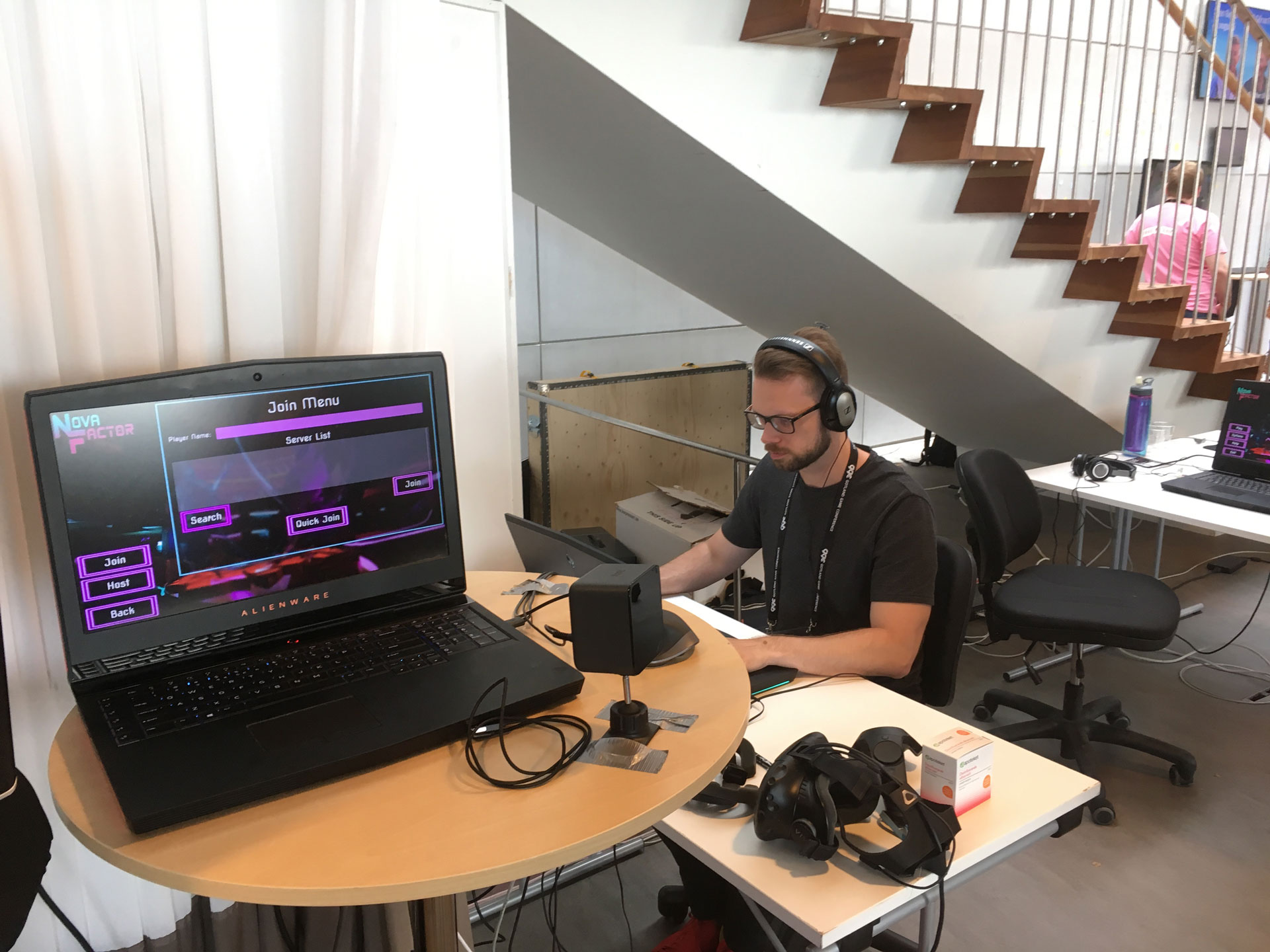
Since our game is a multiplayer game it lets us observe how players interact with each other. This provides us with excellent feedback because we get to see if they feel challenged, entertained, or are just plain bored. This is a multi-layered type of game mechanic that is much more subtle to notice. Our game is a competitive shooter which means that the content in the game is primarily generated by the players themselves. That leaves a lot of room to succeed or fail when it comes to balancing the mechanics of the game. If the players feel they died to quickly, was that due to the skill of their opponent? Did they have too little health? Did the bullets do too much damage? These would be important balancing questions that must be answered in order to refine the game's design.
The first day is primarily closed to the public and allows the students, staff and jury members to "crawl" the booth areas and evaluate the games on the conference floor. We received a lot of great feedback from industry veterans and players alike. It was great to receive the feedback so we can better understand what we got right and what we need to improve on. We are looking forward to the next couple of days where people that purchased tickets to attend and the general public can play our game.
Get Nova Factor - Alpha Version
Nova Factor - Alpha Version
1 versus 1 First Person Shooter. Five rounds a match with replays.
| Status | On hold |
| Author | Bloodberry Games |
| Genre | Shooter, Action, Strategy |
| Tags | First-Person, FPS, ggc2018, Local multiplayer, Multiplayer, PvP, Unreal Engine, Versus |
| Languages | English |
More posts
- Gotland Game Conference 2018 Part 2Jul 29, 2018
- Direct IP addedJul 26, 2018
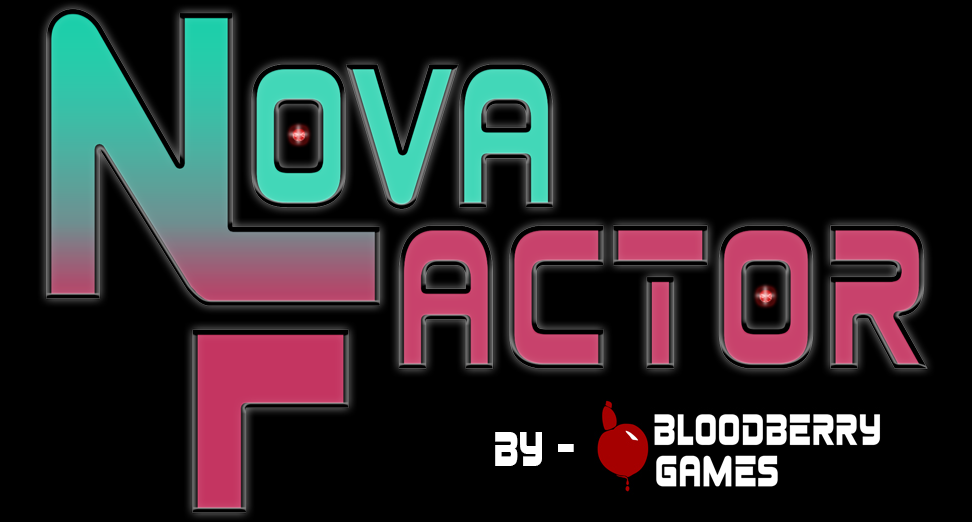
Leave a comment
Log in with itch.io to leave a comment.